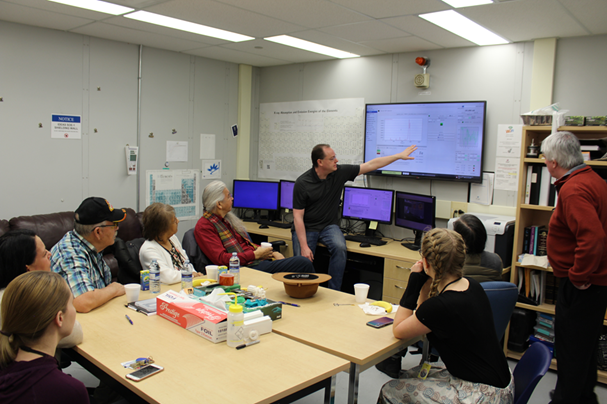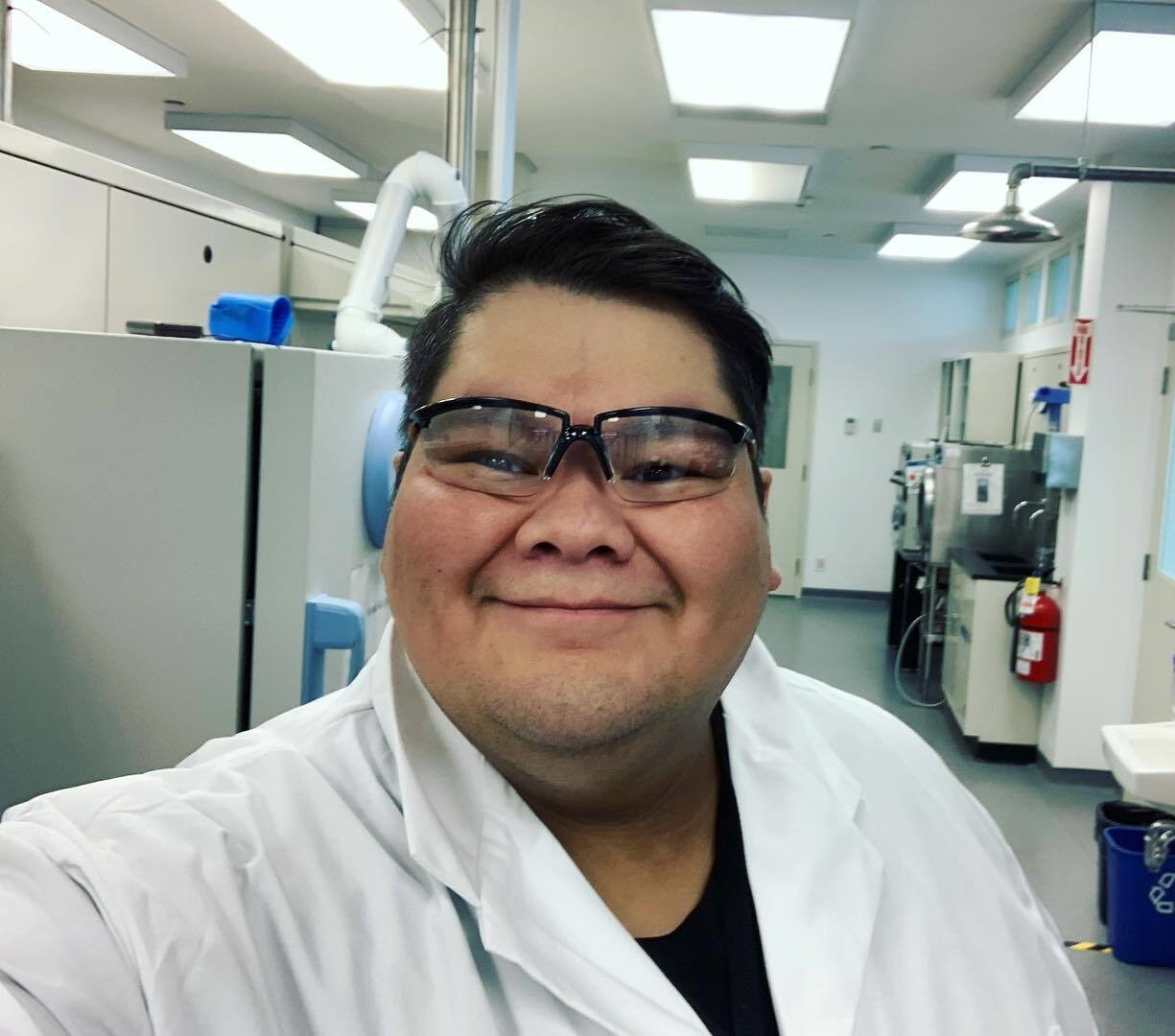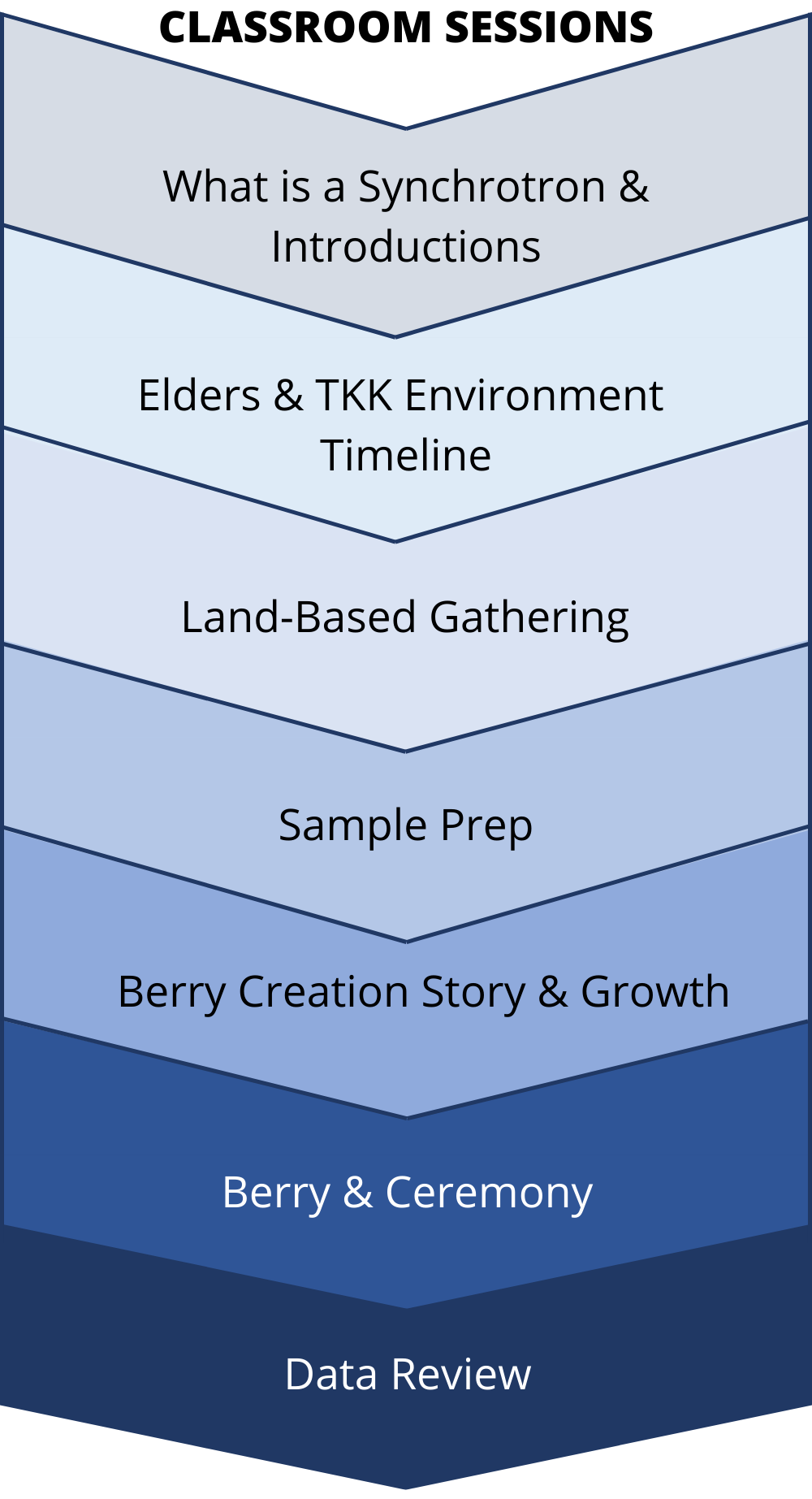Expose Indigenous students to Science, Technology, Engineering, and Mathematics (STEM) research careers with Canada's only synchrotron.
The Berry Project integrates Traditional Knowledge (TK) and mainstream Science in an experience that engages First Nation, Métis, and Inuit (FNMI) teachers, students, and communities. The Berry Project creates a unique opportunity to incorporate food security, Traditional diet, health practices, land-based gathering management, and synchrotron science.
High School, Adult Basic Education, or Post-Secondary
Flexible Timeframes
Virtual and/or On-site
Students combine their community’s Traditional Knowledge to explore the elemental differences between harvested berries and multi-vitamins using synchrotron light. The project includes land-based portions, understanding of historic and modern-day treaties, sample preparation, Traditional relationships with the Berry Nation, Elder/Traditional Knowledge Keeper (TKK) lead environmental timelines, beamtime, learning how to interpret graphs and Indigenous career paths in STEM. The Berry Project generates a collection of cultural expression resources to keep TK alive through oral tradition.
 The Canadian Light Source is proud to offer the Berry Project and we acknowledge the support of the Natural Sciences and Engineering Research Council of Canada (NSERC) PromoScience to make this possible.
The Canadian Light Source is proud to offer the Berry Project and we acknowledge the support of the Natural Sciences and Engineering Research Council of Canada (NSERC) PromoScience to make this possible.
Project Protocols & Indigenous Ethics

The Canadian Light Source Indigenous Education projects followed Traditional Protocol and Ceremony with Traditional Knowledge Keepers Stewart Prosper, Yvonne Chamakese, Joseph Naytowhow, and Métis Nation of Saskatchewan Cultural and Education Director Lori Skjeie and Federation of Sovereign Indigenous Nations (FSIN) Senior Researcher/Analyst - Science & Math, Dale Worme.
Project Leads

Dallas Pelly is an Indigenous educator, community builder, and social innovator. He is a proud U of S alumnus of the ITEP program (B Ed ’18). He is excited about working as an Education Coordinator- Indigenous Programs at the Canadian Light Source. Dallas is passionate about helping bridge the gap between Indigenous knowledge systems and mainstream science. In his spare time Dallas love biking, going for long walks and wrestling with his 3 sons, Oaklen, Emmett and Denver. Dallas and his family currently reside on Treaty 6 territory in what is now known as Saskatoon.
Project Timeframe
These projects can be developed together with the students, teachers, mentors, CLS Education staff anytime during the school year. Sessions, listed below, are scheduled by the teacher with the Program Lead and can be adjusted to fit various timeframes. Through this process, students will participate in a science experience gathering Bison samples and pasture soil samples (collaborating with appropriate Herd Managers). Students connect to CLS through various online platforms and are guided through the sample preparation within their classroom. Samples are returned to CLS and processed during beamtime (virtual and in-person options available; dates for beamtime may vary). All data and results of the experiment will be shared with the class and teacher for presentation and future use.

Session Length: We can customize from a 1hr session to a block session delivery
Project Options: Virtual or On-Site; Both available
Coming to CLS Tips: See What to Expect on our CLS Website
Curricular Connections: Traditional Knowledge, Land-Based, Indigenous Science, STEM Career, Periodic Table of Elements, TRC Call to Action (Science), Soil Science, Sustainable Resource Management, Food Security, Traditional Diets and Medicine, and Inherent Gathering Rights
Indigenous Connections
Resources: See our Virtual Classroom Website
Additional CLS Educational
Resources: See our Virtual Classroom Website
Registration
Are you interested in participating in the Bison Project or have questions? Reach out to our Education Team email to learn more.
